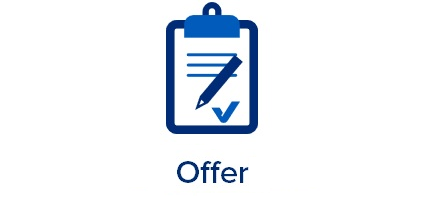
CE certification of pressure equipment
Are you aware that various directives - PED, TPED - apply to all sorts of pressure equipment (vessels, reactors, heat exchangers, piping, accessoires, etc.), that have been transposed as national legislation in all the Member States. Our experts will carry out assessments in accordance with the essential requirements and offer you a wide range of services during the entire process.
One no longer speaks of inspections, but instead, of evaluations of conformity, under the new, global approach underlying the European Directives, such as the PED (2014/68/EU) and the TPED (2010/35/EU).
These directives lay down essential requirements, formulated using very general terminology, with a view to facilitating the process of the unification of Europe. It is up to pressure equipment manufacturers covered under these Directives, to meet these essential requirements by implementing standards and codes. These may be European harmonised standards, but it is also permissible to implement existing national and other standards, provided the manufacturer can prove conformity with the essential requirements. These Directives are also referred to as risk-related Directives since the equipment covered by these Directives are classified under various risk categories. The relevant Directive proposes procedures to assess the conformity under each risk category. The assessment consists in verifying conformity with the essential requirements. The higher the risk category, the more intense the assessment will be. The assessment is carried out by a Notified Body (NoBo) like Vinçotte.
A distinction may be made between three different types of assessment:
1. There is an evaluation of the design – modules B, G and H1 - whether or not combined with an inspection – A2, C2, F, G and H1.
Design evaluation involves the verification of calculations and drawings, choice of materials, the weld configurations, the qualifications of welders and welding procedures, evaluating the applicability and reliability of the proposed non- destructive testing methods, review of the inspection schedule, etc. in short, all possible means that would enable a confirmation that if the equipment had indeed been manufactured in this manner, it would satisfy the essential requirements of the applicable Directive.
2. The follow-up assessment of the manufacturing operations up to and including the final assessment or the verification of compliance with the plans and other design parameters.
In certain cases and for lower risk categories (up to category II), it is sufficient for the Notified Body to only conduct random checks during the final inspection. However, all equipment subject to a higher risk (category III up to category IV) has to be evaluated, and may also include intermediate inspections during manufacturing operations, among other things, to part of the equipment that would no longer be accessible at the time of the final inspection, or where the risk is of unacceptable, irreversible situations.
3. In order to enable manufacturers to fall back on the quality system that have invested in setting up, it is permissible to employ evaluation procedures that are based on quality system assessment.
As with the ISO 9001 standard and depending on the risk category, there is an option to choose between product quality assurance (modules E and E1), production quality assurance (modules D and D1) or total quality assurance (module H). Although, in principle, total quality assurance covers all aspects from design to final assessment, an additional design assessment is required for the highest risk category, and special attention has to be focused on the final inspection (module H1).
It is obvious that the inspector and engineers must be competent in respect of the entire range of activities and disciplines, ranging from knowledge of materials, welding techniques, non-destructive testing, mechanical testing, calculation and dimensioning of pressure bearing devices, fatigue calculations wherever required, etc. You can count on Vinçotte in this regard.
Depending on the case, that the inspector and engineers must be competent in respect of the entire range of activities and disciplines, ranging from knowledge of materials, welding techniques, non-destructive testing, mechanical testing, calculation and dimensioning of pressure bearing devices, fatigue calculations wherever required, etc. You can count on Vinçotte has been complied with.
Our service offers you the following advantages:
- Safety of pressure equipment and installations.
- As a consequence of our inspections, it will be permissible to bring the pressure equipment, pipelines, etc. on to the market.
- In case of modules including design evaluation, it is possible to detect detection of potential problems well in time, with the option of implementing corrective measures well in time.
- The intervention of a reputable Notified Body (NoBo) brings with it an added credibility.
Legislations
Vinçotte is a notified body for the purposes of the following three Directives relating to pressure equipment:
- PED – 2014/68/EU – Pressure Equipment Directive
- TPED – 2010/35/EU – Transportable Pressure Equipment Directive
These notifications apply to the entire range of conformity assessment procedures (modules).
Norms and Standards
The standards that are applied here are of all types of origins. Due to its central location within Europe and in the absence of Belgian building codes, Vinçotte has experience with a wide range of codes and standards since a very long time. There are, of course, the European harmonised standards EN 13480, EN 12952, EN 12953, along with a wide range of supporting standards. But since the use of European harmonised standards is not mandatory, ASME codes are also regularly used (I and VIII), , AD data sheets, CODAP, BS 5500.
This service is primarily intended for market operators (manufacturers, distributors and importers) who act as manufacturers within the meaning of the Directives, and where the risk category of the pressure equipment requires the intervention of a Notified Body (NoBo).
Interested in this solution? Contact us!
Contact
Ask your question directly to the specialised team within your sector.

